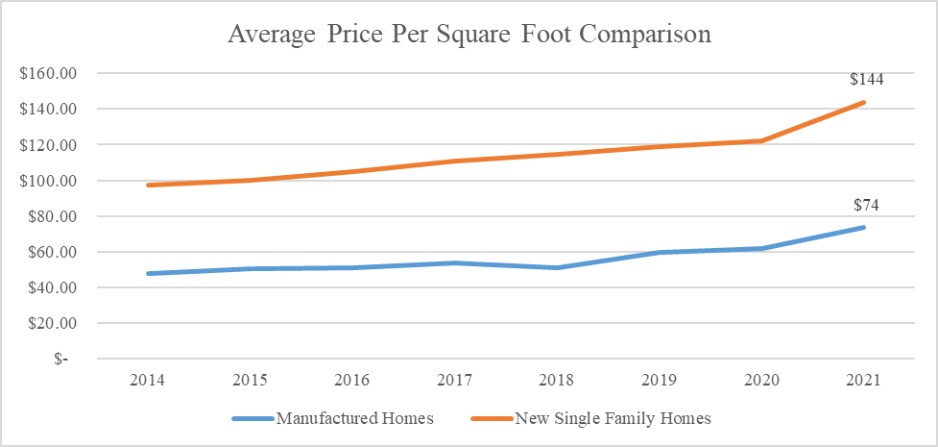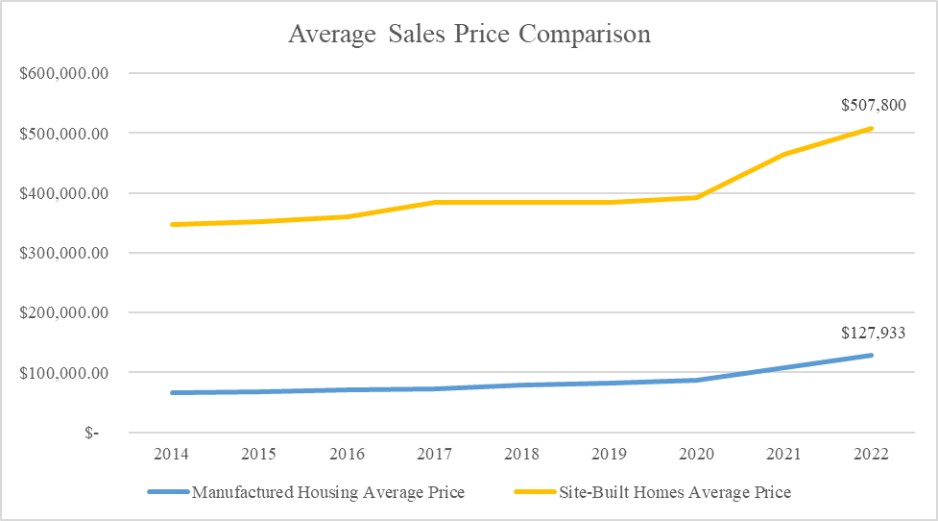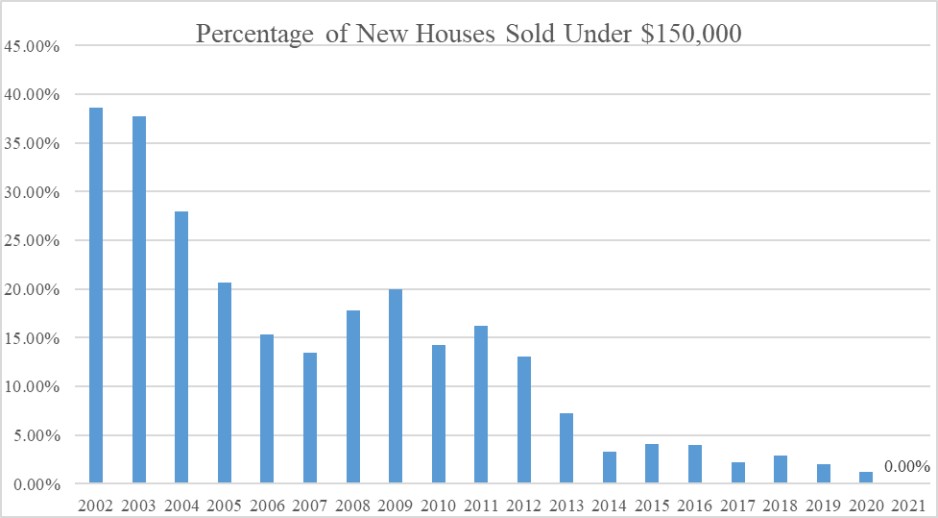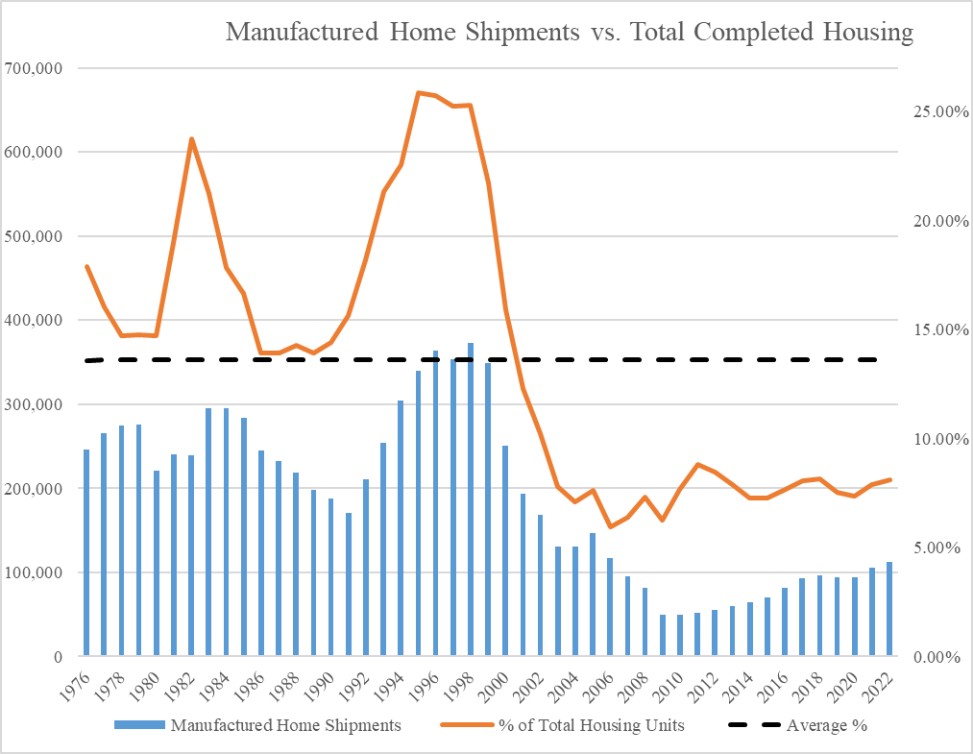and 2021, loans outstanding from manufactured home communities totaled $143,253,000 and $102,992,000, which comprised 545 and 530 loans, respectively. Our average remaining term on these loans was approximately four years and six years as of December 31, 2022 and 2021, respectively.
We also make loans to community owners for the purpose of acquiring or developing properties and, as part of the arrangement, these community owners contract to buy homes from us. These loans typically range in term from two to five years and carry interest at 5.00% to 12.0%. For the year ended December 31, 2022, we originated loans to owners of manufactured home communities for lot development purposes with a total amount of $4,010,000.
Competition
The manufactured housing industry is highly competitive at both the manufacturing and retail levels, with competition based upon several factors, including price, product features, reputation for service and quality, depth of distribution, promotion, merchandising and the terms of retail and wholesale consumer financing. We compete with other producers of manufactured homes and new producers continue to enter the market. We also compete with companies offering for sale homes repossessed from wholesalers or consumers and we compete with new and existing site-built homes, as well as apartments, townhouses and condominiums.
In addition to our company, there are a number of other national manufacturers competing for a significant share of the manufactured housing market in the United States, including Clayton Homes, Inc., Cavco Industries, Inc. and Skyline Champion Corporation. Certain of these competitors possess greater financial, manufacturing, distribution and marketing resources than we do. For the past 17 years, the industry has experienced a trend towards consolidation and, as a result, the bulk of the market share is controlled by a small number of companies. We are the country’s fifth largest producer of manufactured homes. Accordingly, we believe we have a significant opportunity to expand in this industry by effectively growing our market share.
Among lenders to manufactured home buyers, there are significant competitors including national, regional and local banks, independent finance companies, mortgage brokers and mortgage banks such as 21st Mortgage Corporation, an affiliate of Clayton Homes, Inc., Berkshire Hathaway, Inc., Triad Finance Corporation and CU Factory Built Lending, LP. Certain of these competitors are larger than us and have access to substantially more capital and cost efficiencies.
Protection of Proprietary Technology
We rely on a combination of copyright and trade secret laws in the United States and other jurisdictions, as well as confidentiality procedures and contractual provisions, to protect our proprietary information, technology and brands. We protect our proprietary information and technology, in part, by requiring certain of our employees to enter into agreements providing for the maintenance of confidentiality and the assignment of rights to inventions made by them while employed by us. We also may enter into non-disclosure and invention assignment agreements with certain of our technical consultants to protect our confidential and proprietary information and technology. We cannot assure you that our confidentiality agreements with our employees and consultants will not be breached, that we will be able to effectively enforce these agreements, that we will have adequate remedies for any breach of these agreements, or that our trade secrets and other proprietary information and technology will not be disclosed or will otherwise be protected.
Our intellectual property includes copyrights issued by the U.S. Copyright Office for many of our floor plans. We are not currently aware of any claims of infringement or other challenges to our intellectual property rights.
Government Regulation
General. Our company operates in a regulated industry, and there are many federal, state and local laws, codes and regulations that impact our business. Governmental authorities have the power to enforce compliance with their regulations, and violations may result in the payment of fines, the entry of injunctions or both. Although we believe that our operations are in substantial compliance with the requirements of all applicable laws and regulations, we are unable to predict the ultimate cost of compliance with all applicable laws and enforcement policies.



